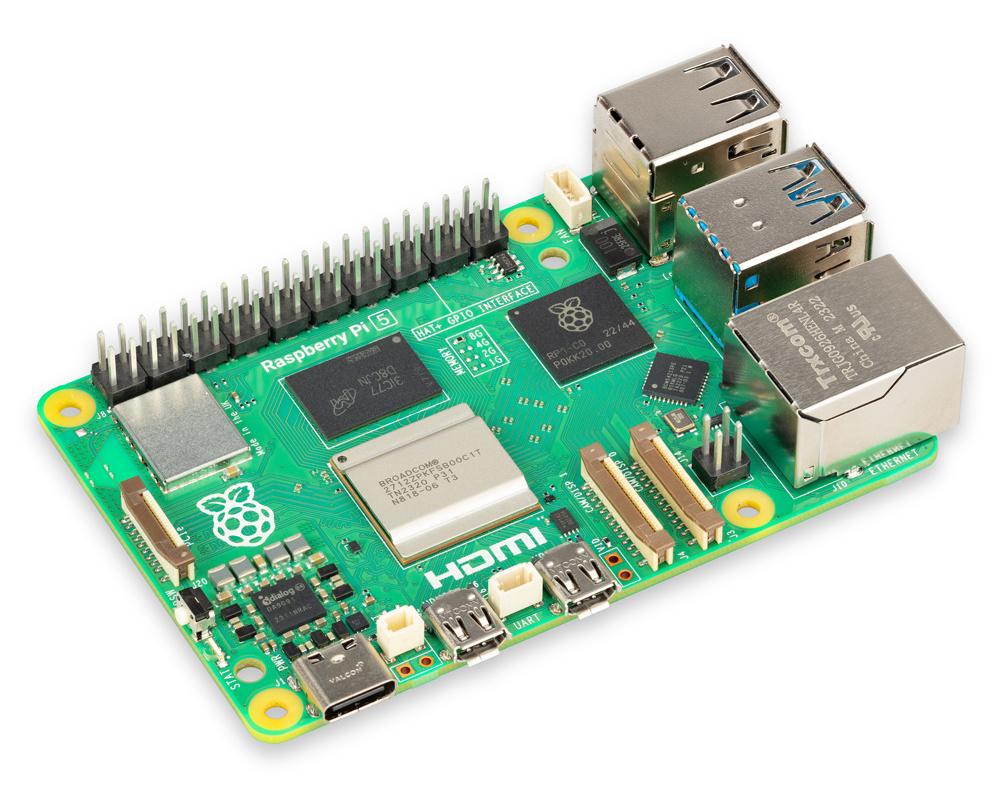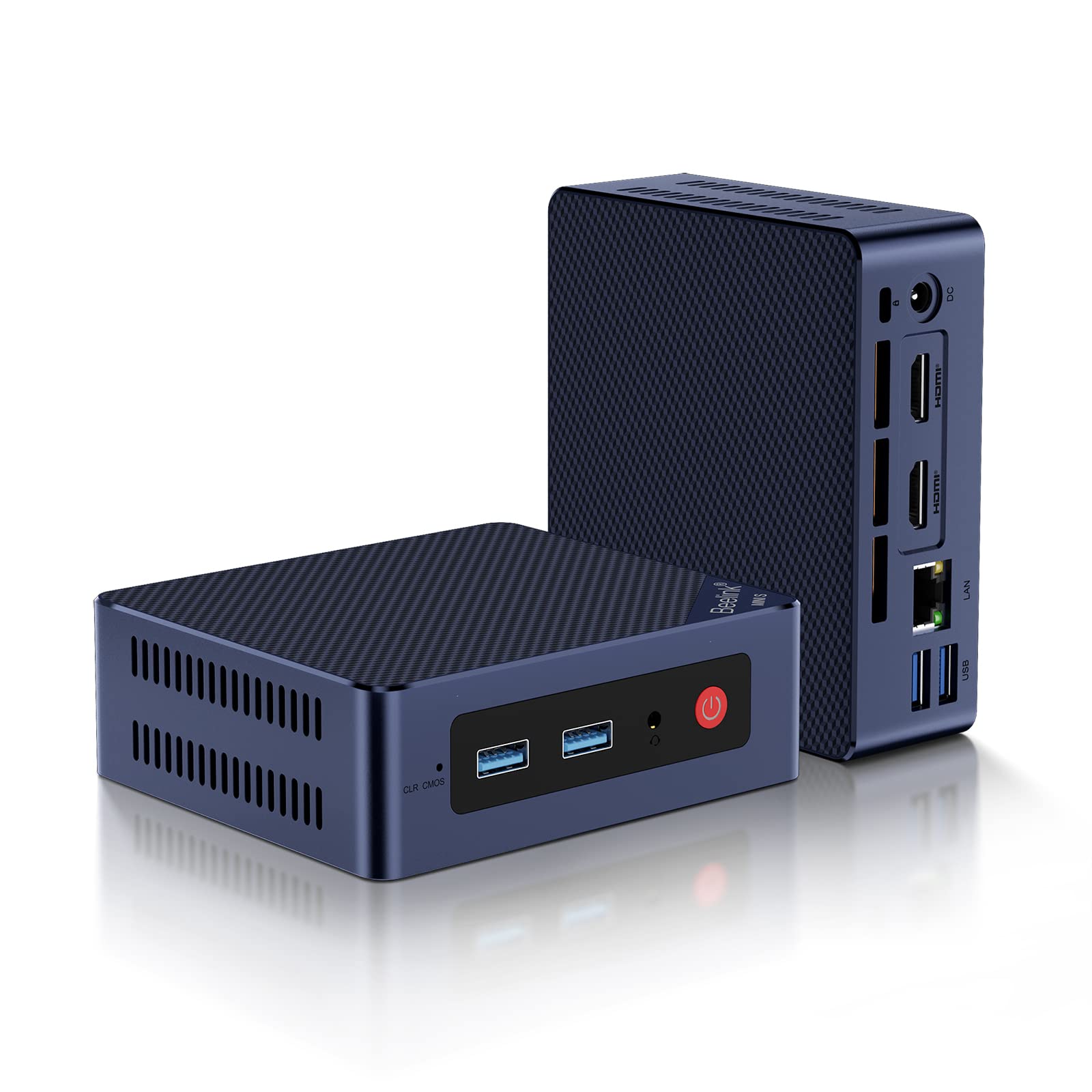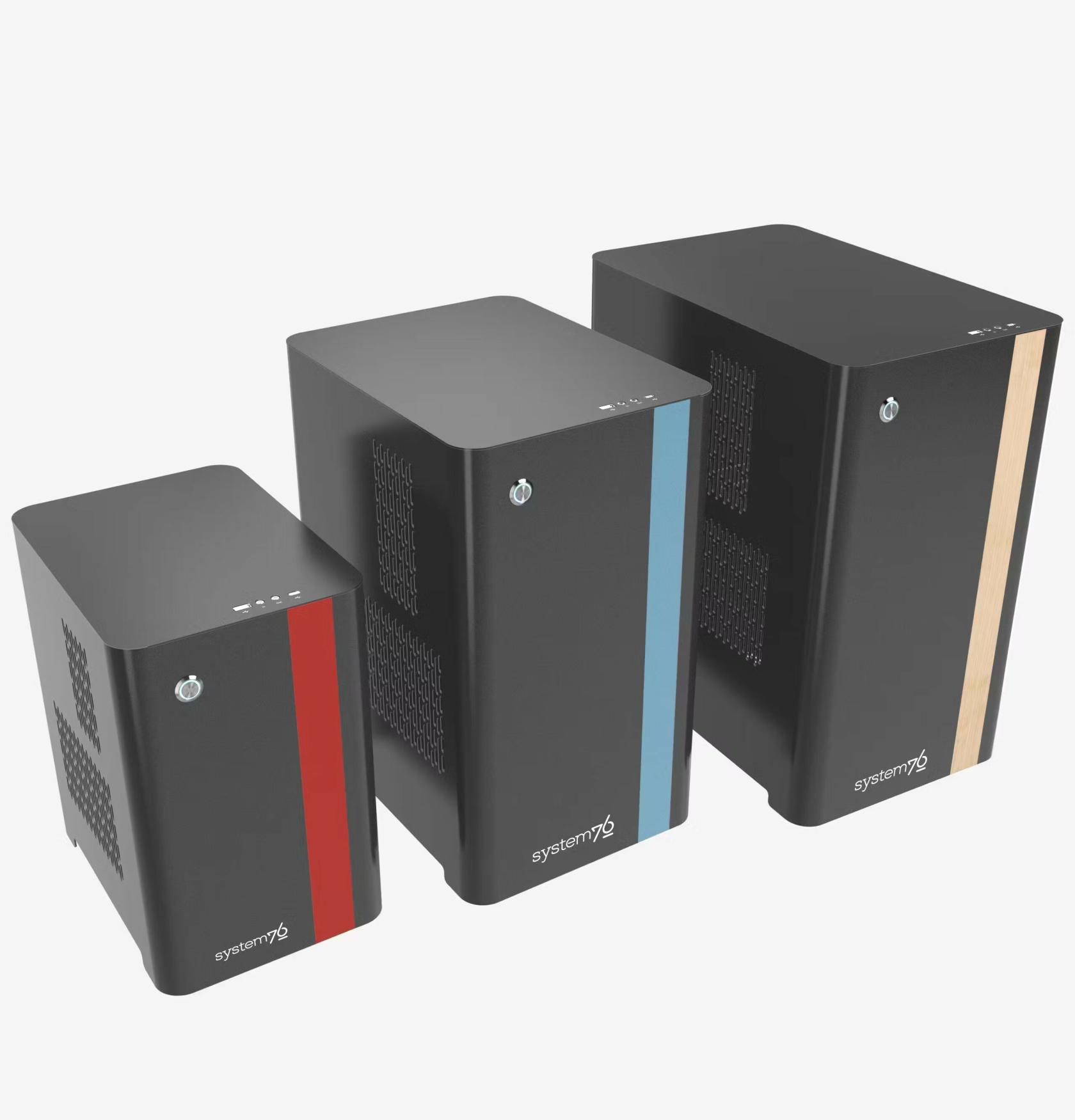Quick-Start Examples
This is an overview of some quick-start computers you can use to create a server for your self-hosted cloud services.
Your experiences may vary.
Always make sure to test for stability when installing new services.
Single-Board Computer
The Raspberry Pi – who popularized this style of computer – currently sell three versions of their board: 3B+, 4, and 5. Other options include: similar vendors such as Banana Pi, Orange Pi and Pine Board; the completely open hardware Libre Board; the Asus TinkerBoard and the Texas Instruments Beagle Board.
Great for hosting a small server where you run services only for yourself.
These computers are reasonably priced with decent specifications.
- Price Range: $35 to $200
- Minimum Specs: 1.2GHz 64-bit ARM quad-core system-on-a-chip; 4GB of RAM; 32GB of Class 10 SDXC flash memory; 1Gbit Ethernet.
- Recommended Specs: 1.8GHz 64-bit ARM quad-core system-on-a-chip; 8GB of RAM; 128GB of Class 10 SDXC flash memory; 1Gbit Ethernet.
- Where To Buy: AdaFruit, LoveRpi, CanaKit, SparkFun, AmeriDroid, and other online marketplaces.
This class of commodity computers use ARM processors that are part of a system-on-a-chip. They are extremely power efficient with performance specifics being dependent on the model you purchase. Generally, the are powered using a USB connector and a high-quality cable.
By default, many come with an Ethernet port, Wi-Fi, Bluetooth, USB, HDMI and 3.5mm audio output. These board also come with a GPIO port which offers programmable pins for HAT add-ons and project development.
- Home Server: Use a Raspberry Pi 4 for Home Assistant to manage your smart devices and Grocy to keep track of your kitchen inventory.
- Personal Cloud: The Raspberry Pi 5 and a USB 3.0 Hard Drive can be a personal OwnCloud server for your calendar, contacts and files. Add Collabora to edit documents, slideshows and spreadsheets directly in your browser.
- Personal Website: Use the Raspberry Pi 3B+ to host a basic website or personal resume from home.
- Personal Wiki: Use the Libre Computer Solitude for hosting your own BookStack to keep track of your personal knowledge.
Single-board computers work well for small servers, but can struggle under heavy or consistent usage. While cost-effective, they are also examples of minimalist computer systems with adequate processing power to match. You may experience the occasional stutter, but these computers can run for months without needing to be restarted.
Mini PC
Small form-factor traditional computers have become popular for creating your own personal media server and set-top boxes using Plex or Jellyfin. These are sold by many notable PC manufacturers, such as Intel NUCs or Dell's OptiPlex and Precision series. There are other direct-to-consumer options like System76, BeeLink and GeekomPC.
Great option for hosting a small media server or a cloud solution for your family.
These computers can be reasonably priced with a traditional x86 processor and expandable storage.
- Price Range: $150 to $1500
- Minimum Specs: 2.5GHz 64-bit 4-core x86 processor; 16GB of RAM; 250GB platter hard disk; 1Gbit Ethernet.
- Recommended Specs: 3.0GHz 64-bit 4-core x86 processor; 32GB of RAM; 250GB NVME SSD; 2.5Gbit Ethernet.
- Where To Buy: BeeLink, GeekomPC, System76, Newegg, and other online marketplaces. Discounted refurbished models are often available.
These types of computers uses the traditional x86 architecture which gives them more processing power at the cost of more power usage. Depending on the model, they may use a desktop or mobile processor and have differing levels of extensibility for add-ons like graphics cards or hard drives.
Many mini PCs come with different connectivity options such as USB, HDMI, 3.5mm audio, optical audio, Ethernet, Wi-Fi and Bluetooth.
- Media Manager and Server: Host your own Jellyfin media server to stream your media remotely. Personal media managers like Radarr, Sonarr, Lidarr, Readarr and Bazarr can help keep track of your media, while Prowlarr can aggregate search results for missing media to send to your peer-to-peer qBittorrent server.
- Personal Blog, Website and Wiki: Express yourself with a WordPress blog, build a knowledge base with MediaWiki and host your own personal website or resume.
Mini PCs can work well for a small personal media or cloud server, but lack the power to support multiple users. Many computers in this form factor cannot support a graphics card or additional hard drives. High-speed NVME hard drives are increasingly common, greatly improving performance for basic cloud servers.
Workstation Computer
Desktop tower computers offer the most power and extensibility for a versatile personal server. They can run multi-purpose services including an OwnCloud personal cloud, Collabora office software, Jellyfin media server, qBittorrent peer-to-peer server and procurement services to curate your media.
Best option for hosting a server for use by yourself, friends and family.
These desktops offer the most versatility and can be upgraded over time.
- Price Range: $500 to $2000
- Minimum Specs: 2.5GHz 64-bit quad-core x86 processor (Intel i5 equivalent); 16GB of RAM; 256GB NVME SSD: 2TB SATA HDD; 1Gbit Ethernet.
- Recommended Specs: 3.5GHz 64-bit quad-core x86 processor (i7 equivalent); 32GB of RAM; 1TB NVME SSD: 6TB SATA HDD; 2.5Gbit Ethernet.
- Where To Buy: System76; Dell Computers and Dell Outlet; Newegg; PC Refurbishers such as PCs for People or GreenPC; Online marketplaces; Thrift stores, flea markets, local exchanges.
These computers have space for a dedicated graphic cards, as well as both traditional hard drives and NVME solid state disks. There are even external USB or Thunderbolt storage options to use for your backup solutions. RAM can also be easily upgraded as needed to run more concurrent services.
- Cloud Office Suite:
OwnCloud,HostCollabora,OwnCloudpaperless,forVikunja,calendars, contacts and remote document access, as well as Collabora to edit files directly in your browser. Plan our your next project with Vikunja, organize documents with Paperless-NGX, and develop code right in your browser with vscode. - Online Community: Host a WordPress
+blog to share updates, document a project using MediaWiki, build community through a Flarum+forum, and manage your own streaming with OwnCast+ Wiki.
Review.



